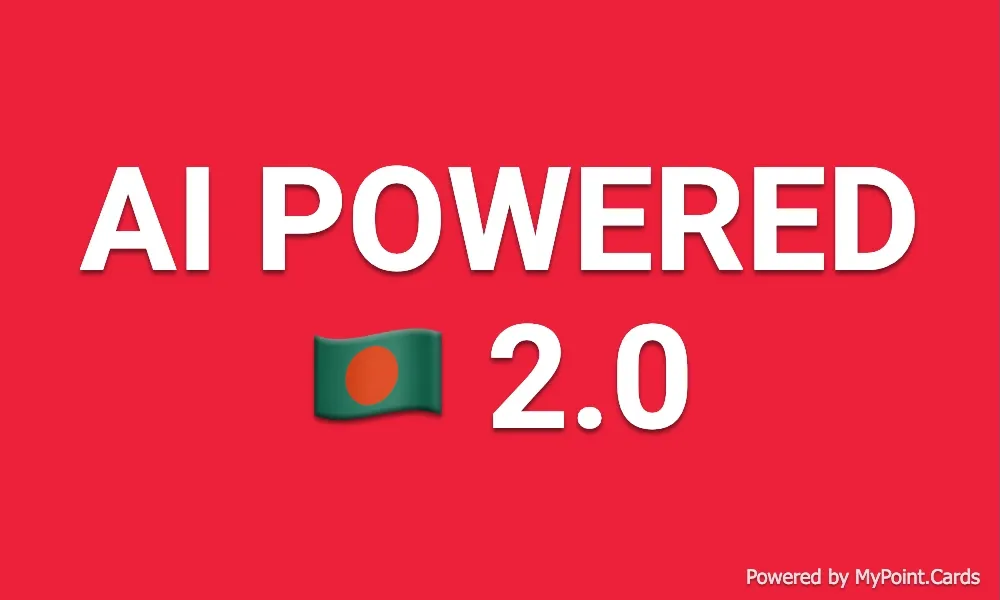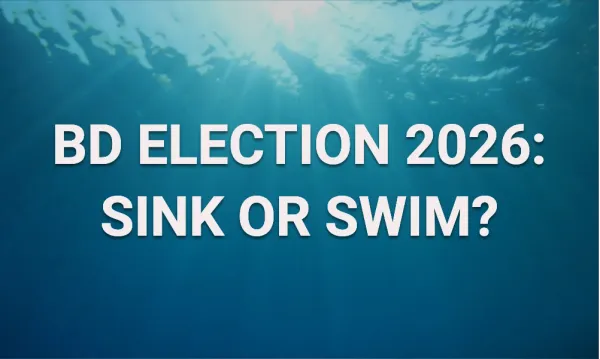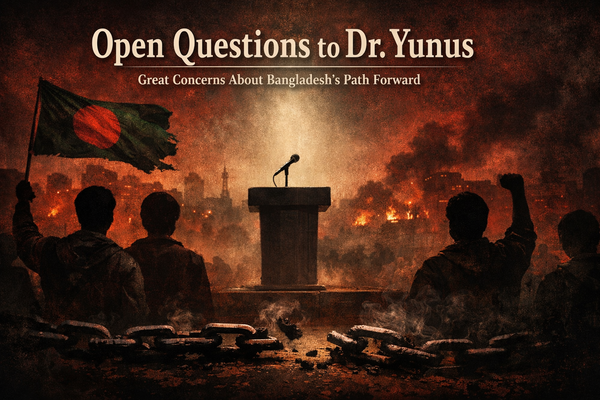AI-Powered Democratic Transition: A Strategic Framework for Bangladesh's Interim Government

Table of Contents
Bangladesh stands at a pivotal moment in its democratic journey. Following the August 2024 political transition that brought Nobel laureate Muhammad Yunus to lead an interim government, the nation faces the complex challenge of building consensus around the July Charter while preparing for peaceful elections. Our research reveals that artificial intelligence offers powerful tools to navigate this transition, though success requires careful implementation tailored to Bangladesh's unique context.
The current political landscape demands innovative solutions
Bangladesh's interim government, formed after mass student-led protests toppled Sheikh Hasina's administration, operates in an extraordinarily complex environment. The government has established 11 reform commissions and is working toward a "July Charter" - a comprehensive framework for democratic governance. However, mounting pressure from various stakeholders creates urgency: the military calls for elections by December 2025, the Bangladesh Nationalist Party (BNP) demands quick polls, while student groups advocate for thorough reforms first.
The National Consensus Commission, led by Ali Riaz, has conducted consultations with 33 political parties and aims to finalize the July Charter by July 2025. Key constitutional reforms under discussion include removing secularism, socialism, and nationalism as state principles while adding pluralism and human dignity. The electoral system may see a return to caretaker government arrangements, and governance reforms propose two-term limits for prime ministers.
This political complexity occurs against a backdrop of significant challenges: inflation above 9%, rising crime rates, etc. The interim government's extra-constitutional status, while legitimized by the Supreme Court, adds another layer of complexity to consensus-building efforts.
Global AI innovations offer proven consensus-building solutions
Research into international applications of AI in political transitions reveals remarkably promising developments. Google DeepMind's Habermas Machine represents a breakthrough in AI-mediated consensus building. In experiments with 439 British citizens, 56% preferred AI-generated consensus statements over those created by human mediators, with the AI increasing group agreement by 8 percentage points while better incorporating minority perspectives.
Estonia's comprehensive digital democracy provides a compelling model. With 99% of public services online and a robust AI strategy, Estonia saves over 1,400 years of working time annually through e-governance. Their success stems from strong political commitment, public-private partnerships, and a "once-only" data principle that builds citizen trust.
Taiwan's vTaiwan platform demonstrates AI's potential for large-scale democratic deliberation. Emerging from the 2014 Sunflower Movement, vTaiwan combines the Pol.is machine learning platform with face-to-face meetings to find consensus points among thousands of participants. The platform successfully facilitated over 20 legislative reviews, including contentious issues like ride-sharing regulation where 4,000+ participants reached consensus.
These successes aren't limited to wealthy nations. Tunisia integrated AI into its post-Arab Spring governance transition, focusing on transparency and anti-corruption through AI-powered financial management systems. Kenya experiments with AI-enhanced citizen consultation and predictive analytics for public service delivery, building on its mobile banking revolution.
AI can transform governance processes
Our research identified specific AI applications across five critical areas for democratic governance:
Public consultation and engagement tools like PublicInput and Go Vocal offer AI-powered sentiment analysis and multilingual support perfect for Bangladesh's needs. Citibot provides government chatbots in 71 languages, while Wordly AI enables live translation for public meetings at a fraction of traditional interpreter costs. These tools can help the interim government conduct inclusive consultations on the July Charter across Bangladesh's diverse population.
Policy analysis and reform design benefits from platforms like Plural Policy Analyzer and the UK Government's Redbox system, which achieved 7x efficiency improvements in analyzing consultation responses. For Bangladesh's reform commissions processing thousands of public submissions, these tools could dramatically accelerate analysis while ensuring all voices are heard.
Election planning and management presents opportunities and challenges. While AI can enhance voter registration management and fraud detection, international experience shows the need for careful implementation to avoid bias against minority communities. The Caltech Voting Technology Project's real-time monitoring systems offer models for ensuring election integrity.
Transparency and accountability mechanisms have proven particularly effective in developing countries. Brazil's Alice bot has successfully detected corruption in public procurement since 2015, while India's Awaaz platform enables citizen corruption reporting with AI analysis. These tools could help Bangladesh's interim government build public trust through demonstrably transparent processes.
Communication and information dissemination tools address critical needs in Bangladesh's multilingual context. DeepL and Google Cloud Translation offer enterprise-grade translation for 30+ languages, while fact-checking tools like Full Fact's automated systems can combat disinformation during the sensitive transition period.
Bangladesh's unique context shapes AI implementation possibilities
Bangladesh brings significant assets to AI-enabled governance. The Digital Bangladesh initiative (2009-2021) delivered 863+ million digital services through 8,858 Digital Centers, saving $30+ billion while reducing 20 billion workdays of bureaucratic burden. With 44.5% internet penetration and 100% 4G coverage, the technical foundation exists for AI deployment.
The recently adopted National AI Policy 2024 establishes institutional frameworks including a National AI Advisory Council, demonstrating government commitment. Bangladesh's homogeneous linguistic landscape (98.8% Bengali speakers) simplifies AI language processing compared to more diverse nations.
However, significant challenges remain. An alarming 84.9% of youth lack necessary digital skills, with rural areas facing extreme digital literacy gaps. The rural-urban divide persists despite infrastructure improvements, with gender disparities in technology access (85% of men vs. 68% of women own mobile devices).
Cultural factors require careful consideration. Bangladesh's collectivistic society values community-oriented decision-making and hierarchical respect, suggesting AI tools should facilitate group consensus rather than individual expression. The preference for indirect communication and formal protocols in government interactions means AI interfaces must respect these cultural norms.
Trust levels vary significantly across demographics. While young urban populations show high acceptance of digital services (76.6% satisfaction with existing Union Digital Centers), rural and older populations maintain skepticism about data privacy and digital governance.
AI solutions can address democratic challenges
Based on our analysis, we recommend five flagship AI initiatives tailored to Bangladesh's immediate needs:
National Consensus Platform: Building on vTaiwan's model, create a Bengali-language AI platform for July Charter consultations. Using machine learning to identify consensus points among diverse political positions, the platform would enable structured dialogue between the 33 political parties while incorporating public input. Implementation could begin within few weeks using existing digital infrastructure.
Reform Commission Analytics System: Deploy AI-powered analysis tools to process the 50,000+ public submissions received by reform commissions. This system would identify key themes, track sentiment across different demographics, and ensure minority voices aren't lost in the volume. The UK's consultation analysis tools, which achieved 80% cost savings, provide a proven model.
Trust-Building Communication Network: Implement multilingual AI chatbots across existing Union Digital Centers to provide accurate information about the transition process, combat disinformation, and gather citizen feedback. With 16,500 centers already operational, this leverages existing infrastructure while building trust through familiar channels.
Transparent Governance Dashboard: Create an AI-powered public platform tracking reform progress, government decisions, and resource allocation. Brazil's success with AI anti-corruption tools demonstrates how transparency mechanisms build public confidence during transitions.
Inclusive Participation Framework: Design AI tools specifically for rural and marginalized communities, including voice-based interfaces for low-literacy populations and offline-capable systems for areas with poor connectivity. This addresses the digital divide while ensuring inclusive consensus-building.
Managing risks requires proactive strategies
International experience highlights critical risks in AI-enabled governance transitions. Algorithmic bias can marginalize minority voices - precisely what Bangladesh's transition must avoid given tensions around religious and ethnic minorities. Technical limitations mean AI cannot fully grasp emotional aspects of political conflicts, requiring human oversight for sensitive issues.
Democratic legitimacy concerns arise when AI mediates political processes. In Bangladesh's context, where the interim government already faces questions about its extra-constitutional status, AI tools must clearly augment rather than replace human decision-making. Transparency in AI operations becomes essential for maintaining public trust.
The digital divide poses particular risks in Bangladesh. With significant rural-urban gaps and gender disparities in technology access, AI-based consensus building could inadvertently exclude vulnerable populations. Mitigation requires multi-channel approaches combining digital and traditional engagement methods.
Political risks include potential misuse of AI for surveillance or suppression, especially given Bangladesh's history with the Digital Security Act. Strong ethical frameworks and multi-stakeholder oversight are essential safeguards.
A phased implementation roadmap balances ambition with pragmatism
Our recommended implementation strategy unfolds across four phases over 18-24 months, aligning with the interim government's timeline for democratic transition:
Foundation Building establishes governance structures including a National AI Ethics Board with representation from government, civil society, and opposition parties. Quick wins through basic AI chatbots for citizen services demonstrate value while building institutional capacity. Initial investment of $10-15 million focuses on framework development and pilot projects.
Consensus Platform Development launches the National Consensus Platform for July Charter discussions, beginning with structured dialogues among political parties before expanding to public consultation. AI analytics support reform commissions in processing public input.
Scaled Implementation expands successful tools nationwide through existing digital infrastructure. The Trust-Building Communication Network reaches all Union Digital Centers while the Transparent Governance Dashboard provides real-time visibility into government operations.
Democratic Transition Support focuses on election preparation using AI tools for voter education, registration verification, and results transparency. Post-election, systems transition to support the newly elected government's operations.
Total implementation costs can be funded through a combination of domestic budget allocation (40%), international development aid from World Bank and UNDP (35%), private sector partnerships (15%), and climate/development funds (10%). Google's $120 million Global AI Opportunity Fund and World Bank's GovTech Initiative offer immediate funding opportunities.
Success demands coordinated actions
The interim government must take immediate steps to harness AI's potential for democratic transition. First, establish high-level political commitment by creating an AI Governance Committee reporting directly to Chief Adviser Yunus. This body should include representation from all major political parties, civil society, and technical experts.
Second, launch quick-win pilot projects within 6-8 weeks demonstrating AI's value for consensus building. A Bengali-language chatbot answering questions about the July Charter process could serve millions while building familiarity with AI tools. Simultaneously, begin AI-powered analysis of reform commission submissions to accelerate their work.
Third, invest heavily in capacity building. Partner with Bangladesh's universities to establish AI literacy programs reaching 500+ government officials and 5,000+ community leaders within six months. Leverage successful models from the a2i program's training initiatives while incorporating AI-specific content.
Fourth, develop robust ethical frameworks preventing AI misuse while building public trust. Transparent AI governance principles, regular algorithmic audits, and strong data protection measures address legitimate concerns about surveillance and bias. Public communication campaigns should emphasize AI as a tool for inclusion rather than control.
Finally, forge strategic international partnerships maximizing both funding and expertise. The World Bank's commitment to digital government, UNDP's AI governance programs, and bilateral partnerships with Estonia and Taiwan offer immediate opportunities for knowledge transfer and financial support.
A transformative opportunity awaits
Bangladesh's interim government faces an historic opportunity to demonstrate how AI can strengthen rather than subvert democratic transitions. The convergence of political will, existing digital infrastructure, and proven international models creates favorable conditions for success. By implementing AI tools that genuinely facilitate inclusive consensus building, Bangladesh could pioneer approaches valuable for democratic transitions globally.
The journey from Digital Bangladesh to Smart Bangladesh need not wait for political stability - indeed, AI tools can help create the very consensus required for peaceful democratic transition. The July Charter process offers an ideal testing ground for AI-enabled governance, potentially transforming a moment of political uncertainty into a showcase for twenty-first century democracy.
Success requires navigating significant challenges around digital literacy, trust building, and political sensitivities. Yet the potential rewards - a peaceful democratic transition supported by genuine consensus and strengthened institutions - justify bold action. With careful implementation respecting Bangladesh's unique context while learning from global best practices, AI can help the interim government fulfill its mandate of delivering democratic renewal.
The path forward is clear: establish governance frameworks, launch pilot projects, build capacity, and scale successful initiatives. International support stands ready, proven tools exist, and Bangladesh's digital foundation provides the necessary infrastructure. What remains is the political will to embrace AI as a tool for democratic empowerment rather than control. In doing so, Bangladesh can write a new chapter in its democratic journey while offering hope to transitioning democracies worldwide.




